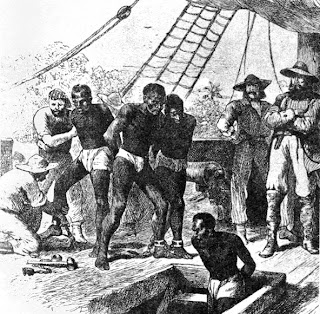Objectives--What students will be able to do as a result of the lesson
Standards--Which state content and developmental standards are addressed in the lesson
Procedures--What the teacher will do to get the students there
Assessment Opportunities--What the teacher can do to see if the lesson was taught effectively: Watching
students work, assigning application activities, getting feedback, etc. (Can include both formal and informal
assessment and both formative and summative evaluations.)
Modifications/accommodations for any special needs students in the class
Additionally, many lesson plans also include:
Materials needed for the class period and any special equipment
Time estimates
Procedural subpoints
Sample:Date
Instructor(s): Instructor
Objectives: from common core standatds CCS
1.
2.
3
Materials needed to do well in classroom
Aim: Open ended question that may have more than one interpretation?
Do Now: Warm Up Activity to Lesson. Reminder that you can also use graphic organizers (see mshyde.net)
Mini Lesson: This is where you get to briefly capture your students
On your particular topics. i.e. introduce your toppic
Tell or show the people what the two topics are about.
Feel free to use images to show audience.
Cooperative Learning: Write a description of your plan here.
This is where students get the most engaged in a lesson. Teachers should be walking around and checking.
My Group's Lesson Plan
March 30, 2011
Instructors: Ms. Jasmine Tejada, Ms. Elizabeth Guzman, Mr. Anthony Stephenson, Ms. Joselin Rodriguez, Ms. Fatima Mohammed, and Ms. Luisa Hincapie
Objectives (SWBAT):
1. Explain the differences between slave conditions in the North and the South.
2. Understand life as a slave in North America.
3. Connect what they learned in class to Harriet Jacobs and her book Incidents in the Life of a Slave Girl.
Materials: Handouts, Coloring tools, Writing Utensils, Projector, and Laptop
Aim: How was life as a slave in North America?
Do Now: Color in the regions of North America where slavery existed and where there were free states.
Use these colors to identify the regions:
RED- Slave States
BLUE- Free States
YELLOW- Territory
Mini Lesson: Slideshow (Background information on slavery and Harriet Jacobs) The various settings of slavery in North America.
What is Slavery?
Slavery is the holding of someone against their will to do your bidding without hope of release. Slavery began in the South during the 1600s because slaves were needed for labor on the plantations. Landowners were most interested in these slaves because they needed laborers that would help maintain their land.
Who was Harriet Jacobs?
Harriet Jacobs was a slave in the South. This meant she had more restrictions of her rights. Her master’s father made sexual advances on her, but she couldn’t do anything because then she would be punished for disrespecting a white man. Later on her life, Harriet Jacobs escaped to the North by boat. The abolitionist family she worked for prevented her previous slave owners from re-enslaving her by granting her freedom in the year 1852.
What was the setting like in the Northern and Southern regions of North America?
Slavery divided the North and the South because slavery was supported much more in the South than it was in the North. Northerners were abolitionists because they wanted to destroy slavery, but on the other hand, the Southerners were pro-slavery, obviously because they wanted to continue slavery.
Class Activity: Write a journal entry on your daily routine as a slave. You can start out by imagining that you are a slave. From there on, think about what your daily routines would be.
In simpler words: Write what you think slaves did every day on a plantation.
Share Out: The students will share out what they have written.
Homework: Create a small collage on what slavery means to you and how the setting affected slavery. Write a paragraph explaining your collage. Remember to cite your sources.
WORKS CITED:http://www.nationalatlas.gov/printable/images/pdf/outline/states.pdf










